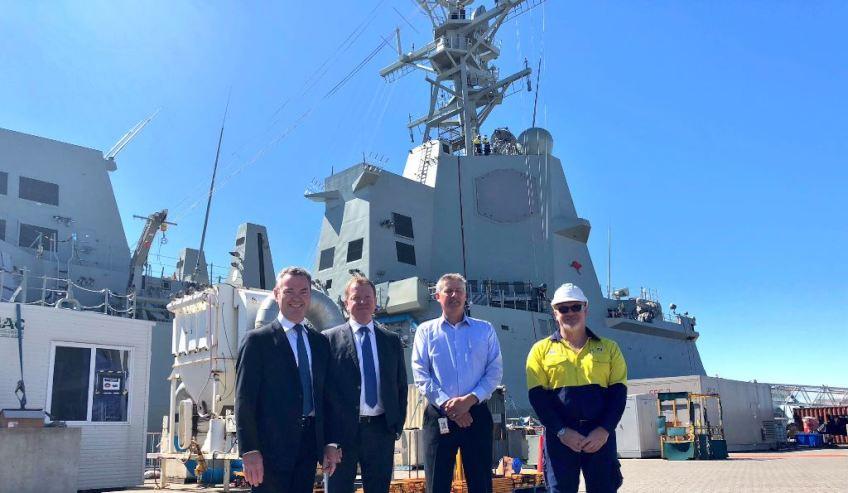The government’s latest shipbuilding initiative has been welcomed by the industry and SEA 5000 Future Frigates bidders.
The new initiative, which will see 200 ASC shipbuilders offered work on the Collins Class submarine sustainment project or scholarships to train and upskill ahead of the commencement of the Offshore Patrol Vessel project, was unveiled by Minister for Defence Industry Christopher Pyne and Minister for Finance Mathias Cormann this week.
Industry body the Defence Teaming Centre said the new initiative will help retain and upskill industry as it rapidly grows over the coming decade, thanks to the $89 billion investment in naval shipbuilding.
"I congratulate the federal government on today’s announcement. ASC is a national asset and its workforce must be preserved," said DTC chief executive Margot Forster.
"This decision further demonstrates that the government is taking an enterprise approach to naval shipbuilding in this country.
"The rapid growth in the Defence sector over the coming decade will require Australia’s defence industry to accelerate the expansion and potential of its workforce. Ensuring we do not lose skilled shipbuilders at the end of the AWD program is critical to our success."
Forster added the sheer scale of the combined naval shipbuilding programs will require a significant increase in appropriately skilled personnel for both defence industries and the defence forces, particularly in areas such as engineering, ICT and other technical skills, which represents a significant risk to the success of these critical projects.
"It seems likely that some additional 5,000 personnel with the right skills and training will be required over the coming decades, split between graduate professionals and vocationally skilled workers on a ratio of one to four," she explained.
"Without strategic intervention such as this, it is not clear how this requirement will be fulfilled."
Bidders for the $35 billion SEA 5000 Future Frigate project have also welcomed the initiative.
BAE Systems SEA 5000 managing director Nigel Stewart said the initiative is positive step in sustaining Australia's naval shipbuilding capabilities.
"Sustaining key capabilities in the shipbuilding sector is critical to successfully transition into manufacture for the future maritime programs," he said.
"Fincantieri welcomes this initiative from the Australian Government," a spokesperson for the Italian ship designer told Defence Connect.
Navantia, designer of Australia's Air Warfare Destroyers, also welcomed the news AWD workers would be offered new jobs and scholarships.
"These positions will enable up to 200 highly skilled workers to remain a vital part of the Australian defence industry," the company told Defence Connect.
"Australia’s ability to deliver future naval shipbuilding programs and develop a sustainable sovereign industry hinges on the availability of a highly trained workforce with a diverse skill set. The government’s announcement will provide active employment and assistance to build the skills needed for the naval shipbuilding industry, which is great news for Australia."
The initiative comes as ASC Shipbuilding CEO Mark Lamarre said the organisation’s initial fears of missing out on a role in the SEA 5000 project have dissipated.
Lamarre said the government’s decision to have ASC build the first two of 12 OPVs in South Australia, with the remaining 10 to be built by Austal and Civmec in Western Australia, has seen a change in dialogue with the three companies bidding for the SEA 5000 project – BAE Systems, Fincantieri and Navantia.
“We were concerned when the [SEA 5000] request for tender became public, with some of what we read there and since that time there's been a bit of change with the dialogue that we've had with the Future Frigate designers,” explained Lamarre.
“But since the award of the OPV project the announcement that ASC shipbuilding would be building those ships, all three designers are back to the table, everybody is very enthusiastic and we're actively working through models to collaborate for the future.
“My optimism is very high now in that we will have a prominent role.”


